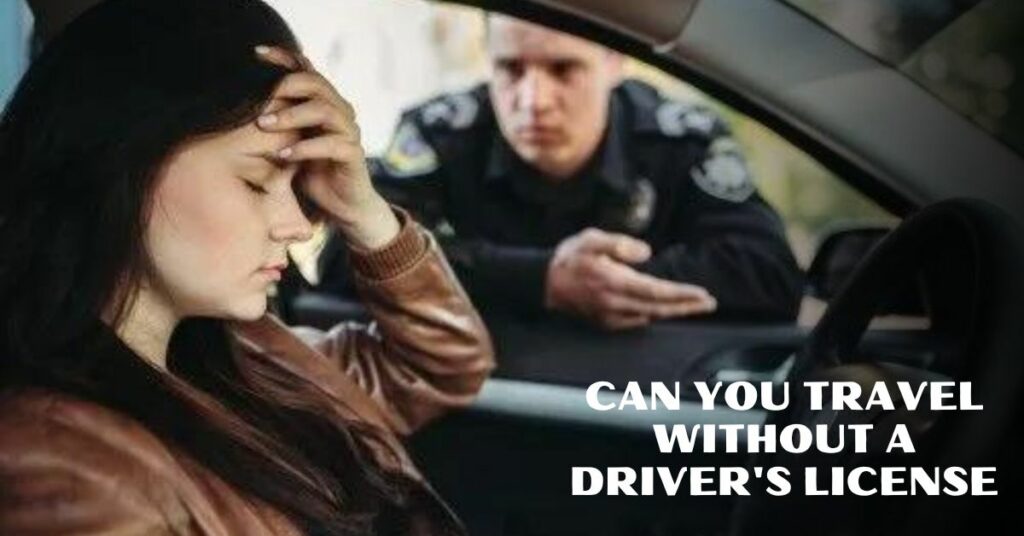As the saying goes, ‘cash is king.’ And when it comes to travelling, carrying enough cash is essential for a smooth and stress-free trip. But how much cash should you carry? That’s a question that many travellers ask themselves before embarking on their journey.
As an AI assistant, I’ve helped countless people plan their travels, and I’m here to share some insights on how much cash you should carry while travelling.
Travelling is all about freedom- the freedom to explore new places, meet new people and experience different cultures. However, being stranded without cash in a foreign country can quickly turn your dream trip into a nightmare. Therefore, it’s crucial to plan ahead and determine how much cash you need to carry with you during your travels.
In this article, we’ll explore various factors that will help you decide on the right amount of cash to bring along on your journey while keeping in mind your desire for freedom.
Determine Your Destination
When you’re planning your trip, don’t forget to consider where you’ll be going so you can make sure you have enough money on hand for any unexpected expenses that might come up. Research visa requirements and check currency exchange rates before leaving. Some countries may require a visa, which could take some time to obtain depending on where you reside.
Also, it’s important to know the exchange rate of the country’s currency versus your own, so that you’re prepared with adequate cash. If you’re traveling to a developed country like Japan or Australia, credit cards are widely accepted and ATMs are accessible almost everywhere. However, if your destination is a developing country like Cambodia or Laos, carrying cash is advisable as there may not be many ATM machines around or credit card acceptance may be limited. It’s best to inquire about these details before embarking on your journey.
Ultimately, knowing how much cash to carry while traveling depends largely on your destination. Researching visa requirements and checking currency exchange rates will give you an idea of what expenses might arise during your trip. Assessing your travel style and preferences will also help determine whether cash or credit cards are more suitable for your needs in that particular location.
Assess Your Travel Style and Preferences
As you think about how to make the most of your trip, it’s important to assess your travel style and preferences in order to determine the best way to handle your finances on the go.
One key factor is budgeting for activities. Some travelers prefer to splurge on expensive tours or adventurous excursions, while others opt for more low-key activities like sightseeing or hiking. Depending on which category you fall into, you may need to adjust your cash flow accordingly.
Another important consideration is choosing accommodation. If you plan on staying at high-end hotels or resorts, you’ll likely need more cash on hand than if you’re opting for hostels or Airbnb rentals. Additionally, some locations may require a deposit upon check-in, so it’s important to have enough money set aside for those expenses as well.
Ultimately, the amount of cash you carry while traveling will depend largely on your personal preferences and travel style. By taking the time to assess your budget and itinerary beforehand, though, you can ensure that you have enough funds available for all of your planned activities and expenses without overspending.
With these factors in mind, it’s easier to decide on payment methods that work best for you – whether that means carrying cash exclusively or using credit cards and other digital payment options as well.
Decide on Payment Methods
Let’s explore how to pay for your travel expenses in a way that suits your personal preferences and makes your trip more enjoyable. When deciding on payment methods, it’s important to consider the pros and cons of each option.
For example, carrying cash can give you a sense of security knowing that you have physical money on hand, but it also puts you at risk for theft or loss. On the other hand, using credit cards or digital payment methods can be more convenient and provide additional benefits such as rewards points or fraud protection. However, some popular destinations may not accept certain types of payments or charge fees for using them. It’s important to research ahead of time and budget accordingly.
When weighing the options between cash and card payments, it ultimately comes down to personal preference and comfort level. Some travelers prefer the flexibility of having both options available while others prefer one over the other. Whatever method you choose, make sure to have a backup plan in case something goes wrong.
As you consider which payment method is best for your travel style and preferences, keep in mind that calculating your daily expenses is an important next step in preparing for your trip. By taking into account all potential costs including transportation, accommodations, food, activities and incidentals like souvenirs or emergency expenses – you’ll be able to create an accurate budget that will help guide your spending throughout your travels.
Calculate Your Daily Expenses
Calculating your daily expenses is crucial for creating an accurate budget that will guide your spending during your trip. According to a recent study, the average daily expense of a traveler in Europe is around €100. This amount can vary depending on the country you’re visiting, the type of accommodation you choose, and the activities you plan on doing.
Budgeting tips, such as meal planning and choosing free or low-cost attractions, can help keep your expenses within budget. Currency conversion is another important factor to consider when calculating your daily expenses. Before leaving for your trip, research the current exchange rate between your home currency and the currency of the country you’ll be visiting.
Keep in mind that currency conversion rates at airports or tourist areas may not be favorable, so it’s best to convert money before leaving or withdraw cash from an ATM once you arrive. By accurately calculating your daily expenses and keeping currency conversion in mind, you can determine how much cash you should carry while traveling.
In the next section about determining your cash needs, we’ll discuss factors such as card acceptance and emergency funds that will further help guide this decision-making process.
Determine Your Cash Needs
Figuring out your necessary spending and backup funds is crucial for a smooth trip, so it’s important to consider factors like card acceptance and emergency situations when planning your finances. Here are some budgeting tips to help you determine how much cash you should carry while travelling:
-
Research exchange rates before leaving home. This will give you an idea of how much local currency you’ll need for daily expenses.
-
Consider the type of activities you plan on doing. If you’re going to be visiting tourist attractions or shopping at markets, bring more cash than if you plan on spending most of your time in nature.
-
Think about the length of your trip. The longer your stay, the more money you’ll need to have on hand.
-
Keep in mind any potential emergencies that may arise. It’s always better to have extra cash just in case.
-
Check with your bank or credit card company about foreign transaction fees and ATM withdrawal limits.
Exchange rates can fluctuate quickly, so it’s important to keep an eye on them throughout your trip. I recommend carrying enough cash for daily expenses and emergencies, but also considering alternative payment options such as credit cards or traveler’s checks.
By being prepared and informed about your financial situation while travelling, you can enjoy a stress-free vacation without worrying about running out of money.
Consider Alternative Payment Options
You might want to explore other payment options besides cash when traveling, and we’re here to give you some tips on how to do just that.
Mobile payments are becoming increasingly popular and convenient for travelers. With a simple tap of your phone, you can pay for purchases without having to carry around physical cash. Many countries have adopted mobile payment systems like Apple Pay, Samsung Pay, Google Wallet and Alipay. Be sure to check with your bank or credit card company prior to departure about the availability of these services in your destination country.
Credit cards are also a great alternative for those who don’t want to carry large amounts of cash while traveling. Most credit cards offer rewards programs that allow you to earn points towards future travel or hotel stays. Additionally, many banks offer credit cards with no foreign transaction fees which can save you money on every purchase made abroad. It’s important to keep in mind that not all establishments accept credit cards so it’s best to always have some cash on hand as well.
In order to keep your money safe while using alternative payment methods, be sure to take proper precautions such as using a password-protected phone or wallet case and never sharing personal information or passwords with anyone.
In the next section, we’ll discuss additional tips for keeping your cash safe while traveling so you can enjoy peace of mind during your adventures abroad.
Keep Your Cash Safe
To ensure your peace of mind while abroad, it’s important to take measures to keep your money safe and secure. One way to do this is by using hidden pockets or money belts. These can keep your cash close and out of sight from pickpockets.
Another great way to prevent pickpocketing is by being aware of your surroundings and taking safety measures. For example, avoid carrying large amounts of cash in crowded areas where theft can easily occur. Additionally, be sure to keep your valuables close at all times and never leave them unattended.
Overall, keeping your cash safe while traveling should be a top priority. By utilizing hidden pockets or money belts and taking necessary safety precautions, you can enjoy your trip with peace of mind knowing that you’re doing everything possible to prevent theft.
In the next section, we’ll discuss how to monitor and update your cash needs throughout your journey.
Monitor and Update Your Cash Needs
After ensuring that my cash is safe, the next step I take while traveling is to monitor and update my cash needs. This involves tracking my spending and keeping a watchful eye on currency exchange rates. By doing so, I can make informed decisions about how much cash to carry with me at any given time.
One strategy I use to track my spending is to keep a daily log of all purchases made with cash. This helps me stay within budget and avoid overspending. Additionally, using credit cards or mobile payment methods for larger purchases can help reduce the amount of physical cash needed.
Another important consideration when monitoring my cash needs is staying up-to-date on currency exchange rates. Exchange rates fluctuate frequently, so it’s important to check them regularly in order to get the best value for my money. With this information in hand, I can make informed decisions about when and where to exchange currency.
By actively monitoring and updating my cash needs while traveling, I’m able to enjoy peace of mind knowing that I have enough money on hand without carrying around excessive amounts of physical cash. It’s just one more way that I can stay prepared for whatever adventures come my way during my travels!
Frequently Asked Questions
What do I do if I run out of cash while travelling?
If I ever run out of cash while travelling, it can definitely be a scary situation. But thankfully, there are ways to access emergency funds and find local resources for financial assistance.
First and foremost, it’s important to have backup options such as credit cards or traveler’s checks in case of emergencies. If those aren’t available, reaching out to friends or family back home for help can also be an option.
In terms of finding local resources, speaking with the staff at your accommodations or visiting the local embassy/consulate can provide valuable information on where to seek financial assistance.
Overall, it’s important to stay calm and proactive in finding solutions when running low on funds while travelling.
Is it safe to carry large amounts of cash while travelling?
Travelling is all about freedom and exploration, but it’s important to be mindful of safety. Carrying large amounts of cash can be risky, especially in unknown territories.
Travel insurance can offer a safety net in case of theft or loss, but it’s always better to prevent such situations from happening altogether. That’s why I always recommend using alternative payment methods like credit/debit cards or mobile wallets whenever possible.
Not only does this reduce the risk of theft, but it also provides convenience and ease of use while travelling. As they say, ‘less is more’, so adopt this mindset for carrying cash too!
Should I exchange my cash before leaving my home country or wait until I arrive at my destination?
When preparing for an international trip, one of the decisions you’ll have to make is whether to exchange your cash before leaving your home country or wait until you arrive at your destination.
There are pros and cons to both options. If you exchange your cash before leaving, you’ll have peace of mind knowing that you have enough money on hand for immediate expenses upon arrival. However, this could mean paying higher fees and receiving a less favorable exchange rate compared to what’s available locally.
On the other hand, waiting until you arrive can give you access to better currency exchange rates. Additionally, using credit cards while traveling has its own set of pros and cons – they’re convenient but may come with foreign transaction fees.
To find the best currency exchange rates for your destination, consider checking out online resources or asking locals once you arrive. Ultimately, it’s up to personal preference and individual circumstances when deciding how much cash to carry while traveling and when to exchange it.
As someone who values freedom and flexibility while exploring new places, I personally prefer a mix of both options – some local currency exchanged beforehand for immediate needs plus using my credit card whenever possible for added convenience.
What should I do if my cash is stolen or lost while travelling?
Losing your cash while travelling can be a nightmare. It’s like losing a part of yourself, leaving you feeling vulnerable and helpless. However, it’s important to remain calm and take action immediately by reporting the theft or loss to the local authorities.
While waiting for their response, start exploring alternative payment methods such as credit cards or mobile payment apps that may be available in the area. Don’t let this setback ruin your trip – with resourcefulness and determination, you’ll find a way to get back on track and enjoy the freedom of travel once again.
Are there any restrictions on the amount of cash I can carry while travelling to certain countries?
When traveling to certain countries, it’s important to be aware of any restrictions on the amount of cash you can carry. Carrying too much cash could result in legal consequences, such as fines or even imprisonment.
It’s always a good idea to research the specific laws and regulations for each country you plan on visiting. Additionally, having travel insurance coverage can provide some peace of mind in case your cash is lost or stolen while abroad.
With proper planning and preparation, you can ensure a safe and enjoyable trip without worrying about carrying excessive amounts of cash.
Conclusion
In conclusion, determining how much cash to carry while traveling requires careful consideration of your destination, travel style, payment methods, and daily expenses. By assessing these factors and calculating your cash needs, you can make informed decisions about carrying physical currency versus using alternative payment options such as credit cards or mobile payments.
Remember to keep your cash safe by storing it in a secure location and monitoring your spending regularly. As your travel plans evolve, don’t forget to update your cash needs accordingly. Whether you’re a budget-conscious backpacker or a luxury-seeking adventurer, understanding the importance of managing your cash flow will allow you to fully enjoy the journey ahead.
So go forth with confidence and embrace all that the world has to offer – happy travels!

Meet Scott Robinson, a seasoned traveler with 28 countries under his belt, has immersed himself in diverse cultures around the world. His articles are a window into the rich tapestry of traditions, customs, and local flavors he has encountered on his globetrotting escapades. Scott’s deep appreciation for the beauty of cultural diversity shines through his writing, allowing you to embark on a virtual journey that celebrates the vibrant mosaic of humanity.


